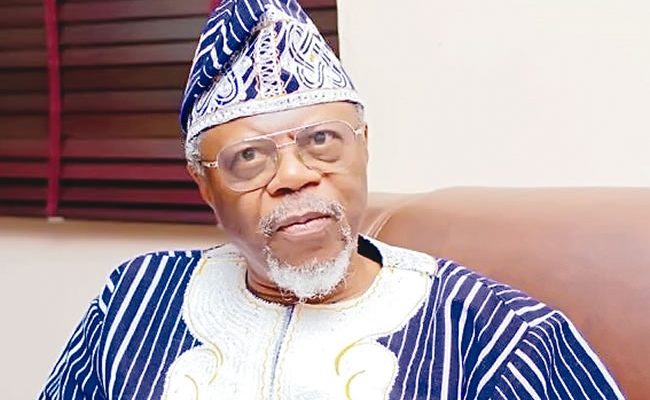

The Nigerian Tribune has played a vital role in the expansion and development of Nigerian democracy and has served as an instrumental and impactful companion through the nation’s trajectories. The foundation of democracy and the entrenchment of fundamental human rights is not just the establishment of some governmental institutions with constitutional mandates and elections; it is also the empowerment of democratic institutions like the press and the anticipation of criticism. The story of Nigerian democracy is not complete without the telling of the development of its press, even in the face of despotism.
After its establishment by Chief Obafemi Awolowo in 1949, the Nigerian Tribune became one of the pivots of justice, freedom, and self-determination as a people severally and as a nation jointly. It became a platform and mouthpiece for advocating Nigerian independence as well as the criticism of the British colonial rule that was not particularly putting the locals in perspective. This added to the later expansion of nationalist views and the propagation of the contributions of opinion leaders, which snowballed to the eventual independence of the nation.

What was necessary at that time was not just the agitation for independence by some leaders like Awolowo, Nnamdi Azikiwe, and others that led to the trajectories of Nigerian independence but the conscious subscription of the people to the idea of independence. The Nigerian public needed the virtues of self-determination and upheld the muse for the fight to achieve it. The platform, the Nigerian Tribune, then became a necessary tool whereby the opinion and movement leaders communicated the policies of the government and welcomed criticism. The golden pens of Awolowo on the pages of the Nigerian Tribune became instructive in the ideological growth of the Nigerian citizenry towards self-determination.
With independence came the heavy mandate of leadership on the shoulders of Nigerian politicians who were just asserting their leadership acumen in nation-building. The vision changed from mere self-determination to self-actualization as set goals became the inspiration for institutional and governmental actions. While the nation grew, the press – Nigerian Tribune grew with it and accommodated the relevant views and criticisms befitting the day.
Being an independent private body, the Nigerian Tribune welcomed several editorials that pointed the nation towards the ideals of federalism and the importance of its adoption. This was one of Chief Awolowo’s visions, and the newspaper was very handy in propagating these ideals. The subjects of discussion in that period pointed to achieving economic independence, regional autonomy, free education, free press, and the trajectory of African political development. The Nigerian Tribune, in those early stages of Nigerian politics, served as a scoreboard for the political expectations of the nation.
One of the most trying moments in the Nigerian political development and the progression of the people as a nation was the unfortunate events during and after the Biafra War of 1967 to 1970. It seemed as if there was an approaching end to the nation called Nigeria. The Nigerian Tribune was one of the newspapers that provided objective captions of the stories that arose and became a reservoir for reliable information. While it served as a means of dissemination of vital information, it was also instrumental in the shaping of public opinion and the promotion of national unity despite adversities. It is also important to point out the role of the newspaper in critiquing the choices and decisions of the military and political leaders at the time, as well as devastating concerns around respect for the dignity of human persons and other humanitarian worries.
Another stage of Nigerian political development was the intermittent military intervention in the nation’s political determination. Until 1999, Nigeria was not allowed to develop through the phases of democracy, and the ghost of these events still haunts the nation and its institutions today. The nepotic and despotic military rulership tested the strength of the press at the time, and pressmen, as well as newspaper companies, were operating on a “watch your back” approach. It was a battle of the strong, especially during the Buhari and the Abacha tenures, but the Nigerian Tribune was as intense as expected.
At different points in the military regimes, the Nigerian Tribune and its editorials became sources of condemnation and criticism of authoritarianism, abuse of governmental authority, resilience against intimidation, and overbearing governmental censorship, and served as a voice for national unity and pro-democratic ideals.
Despite the difficulties laid in the ways of the nation, the Nigerian Tribune grew through it and has become one of the longest-standing independent newspapers without favoritism and compromise. This brings us to the role of the Newspaper in the contemporary development of the nation.
Currently, Nigerian democracy is passing through its formative stage, and the development of the nation’s political institutions has often been the subject of discussion. The nation is battled with corruption, insecurity, poverty, abuse of human rights, and grave inefficiency in almost all sectors. More than ever, the nation needs all the eyes opened and must invite criticism, information dissemination, and the analysis of matters for the consciousness of the people.
While everyone cannot be in the government, the press becomes the channel through which democracy maintains the role of the people. Many newspapers and press organizations have lost these drills and can not appreciate these duties. Still, it is relaxing to see that the Nigerian Tribune reminds the press of its mandate as one of the tools through which the people could order development into existence and bring leaders to the podium of accountability. The Nigerian Tribune has been instrumental to Nigerian development, but in this trying time when the people shout for help and interference, it must be empowered further to manifest itself as the voice of the people as it did in the past.
Historic and Consistent Resistance
The presence of the media in any advanced civilization today encourages civic participation, which in turn motivates people to build an inclusive system. In the Nigerian case, the media has always served multiple purposes. For illustration, it was through the power of the print media that Nigerians became overtly conscious about the ongoing operations of colonial schematics and the consequences it could bring for the Nigerian future. In fact, it was the Nigerian Tribune that became one of the information hot spots for the citizens, ensuring that they had access to the latest information and the plans of the colonial powers against the people. That way, the consciousness for independence became ubiquitous because of its nationwide reach. People became more aware of the destructive essence of colonialism, and from that content of knowledge, they formed formidable bonds that were deployed as instruments to unseat the imperialists. It worked substantially. To be honest, the newspaper platform gave the people a common identity and group integrity as evidence that Nigerians had a flair for anything that increased their intellectual quality. In fact, the success associated with the Nigerian Tribune sent shivers to the spines of colonial exploiters, and that gave the country a strong foundation for freedom.
But more than this, the newspaper has become a viable instrument of resistance to all forms of oppression that followed the post-independence era. Hardly had the country been accorded freedom by the government of the British imperialists than its neocolonial oligarchs became another agent of despoilation and exploitation of unprecedented magnitude. Everything after the independence indicated that it was not yet Uhuru and that those who have made the course of freedom their natural mandates have not had the time to vacate from that responsibility. As important Nigerians understood the imperatives of decolonization, they began to use the newspaper platform to yet again reorient the citizens about what is expected of them and how their civic responsibilities are unnegotiable in the fight to put the overlords in their position. This explains why many people, especially individuals that belong to my generation, became more glued to the newspaper platform because we understand that apart from it being the most accurate in terms of distribution of news, it also provided the opportunity to lend stamina to our voices, which in turn helped shape a number of policies that were initiated at different times. In essence, it is considered a compass as it has been very valuable in educating us on the prospects and challenges of making some national decisions.
More importantly, the Nigerian Tribune has been a very strong crusader for the cultural heritage of Nigerians as it helps to protect the ideals and values of the Nigerian people. The ripple effects of this cannot be overemphasized. For one, it has succeeded in spreading the gospel of the country beyond the shores of Nigeria, thereby making itself instrumental in spotlighting Nigerian cultures in places where it never would have been without the media. One of the greatest qualities of the Nigerian Tribune is its flexibility and adaptability to the ongoing development of the world. Today, it has become manifest as an online newspaper platform just so that it can transition into the lifestyle that is prevalent in modern times. It has increased its quality because people understand how well it stands by truth regardless of whose ox is gored.
Today, the Nigerian Tribune turns 75 years, manifesting its commitment to the development of the nation as a state and walking it through the pangs of colonialism, the missteps in the early years of independence, the agonies of civil wars, the brutalities of military rules, as well as other historical chapters in the big book called Nigeria. This anniversary should be a celebration of not just the years of existence but also the renewed commitment to speak truth to power and continue to discharge its role as a prompter for democratic ideals. If the nation must grow and be better, the Nigerian Tribune has a mandate to usher it to it.
Professor Falola is an Emeritus Professor of History.
READ ALSO: Police reject N174m bribe, arrest suspected internet fraudster in Lagos








